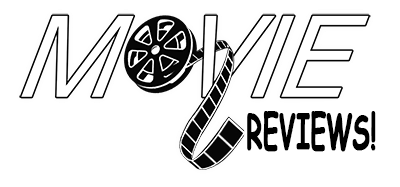 🍿🍿🍿🍿🍿🍿🍿🍿🍿 | 🎙️ EPISODE 545: 09.01.22 Back to back excellent crime dramas on the program! A History of Violence is weirdly similar to yesterday's movie (2018's Dogman) in that it merges a lot of quiet moments with select outbursts of maximum violence, all in service of a really interesting character study. (Also, they were both Cannes selections released on the exact same day, thirteen years apart.) This is such a good and simple story, and my only real criticism of it is hinges on the latter. It teeters on being too simplistic. It leaves you wanting more, which can be a good thing, but in this case I don't know what that more would even be. That said, this is an excellent film and my critique about wanting more has nothing to do with length. This is a slow burn even at the standard Cronenbergian 90 minutes. He's beyond mastered the economical side of storytelling at this point; it's almost not even worth mentioning. |
A horrifying and ugly encounter leads to a cross-cut for the ages when a deranged spree killer shoots a little girl...
Here we meet the Stall family, headed by Tom (Viggo Mortensen) and his wife Edie (Maria Bello). Along with their teenage son, they are all comforting the youngest daughter whose just awoken from a scary dream. The sentiment "monsters aren't real" that they try to convey to the frightened child juxtaposed with the action at the motel is a little too on-the-nose, for my tastes. In general, there are a few moments in the screenplay like this, as well as a couple of Dawnson's Creek-esque "stuck in the early 00s trap of making teenagers talk like adults," like this lockerroom bully sequence...
But these crimes are few and far between. Much like the actual onscreen ones. Despite having "violence" right there in the title, there's only a handful of short diversions in between the family and character-building dynamics. Of course, they too are economical: packing a mean, and memorable (read: bloody) punch in only a few minutes of gory screen-time.
The killing duo from the start make there way to the Stalls' small town and we get the first of a trio of expertly filmed showdowns of Tom doing John Wick in microcosm. We're in and out in less than 90 seconds...
Sometimes it's in the violence you don't show, that makes these scenes really pay off. Like the restraint Tarantino showed in Once Upon a Time in Hollywood, comes to mind as an example.
Anyway, this little moment of heroics makes Tom a national news star. And he's recognized by the Irish mob out of Philly who swear he's not who he says he is...
While brief, it's a menacing and memorable performance by Ed Harris. Slowly, Tom's secret begins to unravel alongside his home life: his wife is suspicious, his son (like father) brutally beats up his bullies, their daughter is stalked at the shopping mall. It all comes to a head during violent outburst #2 where — you guessed it — all the bad guys die. This time with an assist from his son...
As I write this recap, I'm finding the directness of the plotting all the more tantalizing. There's something intrinsically satisfying about watching a linear story where the 'good' guy keeps winning. The conflict has almost nothing to do with the actual violence. It's all about the unraveling of the lie. It's kind of a morality play told in reverse in this regard. By the end, you're left feeling ambiguous about Tom and his place in the world and how you're supposed to connect with him as a viewer. This is oppositional to most anti-hero storylines by tradition, wherein the moral vagueness is positioned upfront and clarity is sought through action.
After that madness in the front lawn, there isn't much left for Tom to do, but go to Philly and deal with it. And by "deal with it," I mean kill everybody including his own brother...
The movie ends in a crushing, silent fashion: Tom returns home, joins his family at the dinner table as his two kids offer him food. Not a word is spoken. There's hope in the eyes of the children but that doesn't look like hope on the faces of the adults. Short of disappearing again, this time together, it's probably not gonna work out for the Stalls. It's a strangely tragic ending for a film that finishes with such a climactic 'win' by the 'good guy'. And this is why it's great. Another fantastic entry that, in my book, cements Cronenberg's second half of his career as superior to the arguably more popular/beloved first half.
𝚃𝚑𝚒𝚜 𝚒𝚜 𝚝𝚑𝚎 17th 𝚒𝚗𝚜𝚝𝚊𝚕𝚕𝚖𝚎𝚗𝚝 𝚘𝚏 𝙲𝚑𝚛𝚘𝚗𝚎𝚗𝚋𝚞𝚛𝚐 – 𝚖𝚢 𝚌𝚑𝚛𝚘𝚗𝚘𝚕𝚘𝚐𝚒𝚌𝚊𝚕 𝚠𝚊𝚝𝚌𝚑/𝚛𝚎𝚠𝚊𝚝𝚌𝚑 𝚘𝚏 𝙳𝚊𝚟𝚒𝚍 𝙲𝚛𝚘𝚗𝚎𝚗𝚋𝚎𝚛𝚐'𝚜 𝚏𝚒𝚕𝚖𝚘𝚐𝚛𝚊𝚙𝚑𝚢. 𝙲𝚕𝚒𝚌𝚔 𝚑𝚎𝚛𝚎 𝚏𝚘𝚛 𝚏𝚞𝚕𝚕 𝚛𝚊𝚗𝚔𝚒𝚗𝚐 𝚊𝚗𝚍 𝚖𝚘𝚛𝚎...
CHRONOLOGICALLY
⫷ EPISODE 544 - (YOU ARE HERE) - EPISODE 546A ⫸
⫷ EPISODE 544 - (YOU ARE HERE) - EPISODE 546A ⫸
A History of Violence is a 2005 action thriller film directed by David Cronenberg and written by Josh Olson. It is an adaptation of the 1997 graphic novel of the same title by John Wagner and Vince Locke. The film stars Viggo Mortensen as the owner of a small-town diner who is thrust into the spotlight after confronting two robbers in self-defense, changing his and the lives of his family forever. Maria Bello, William Hurt, and Ed Harris play supporting roles. The film was in the main competition for the 2005 Palme d'Or. It was released on May 16, 2005.

0 comments:
Post a Comment